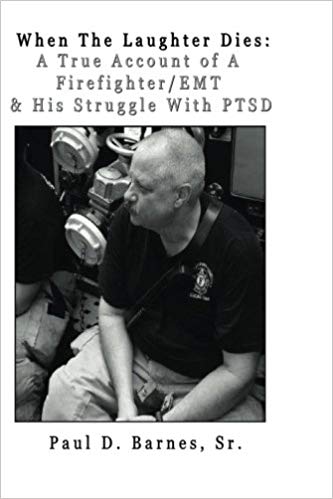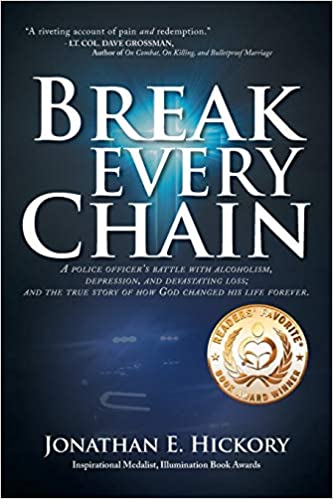There is a lot of talk lately about first responder PTSD, increasing suicide rates and general lifestyle issues. While these topics are being openly talked about … finally … to date not much in the way of organized funding efforts or any serious official recognition of the condition and causes have been forthcoming.

The elephant in the room.
There are several non-profit organizations trying to raise both awareness and funds, individual efforts by coalitions of community groups for their responders and several mental health and addiction treatment centers all adding a ‘first responder’ program to their offerings. All great efforts.
I was speaking to a coaching colleague, a civilian, the other day and this topic came up. She was speechless when I explained what we all face, both on the job and then when we try to seek help for clearly job-created health, wellness and emotional well-being issues.
She asked a simple question, “why is this an issue”? The explanation took 30 minutes to explain which I will try to summarize in words here.
There is the age-old issue of trying to get first responders to open up and talk, about anything that isn’t a war story. Feelings … emotions … asking for help? “Nope, not me … I’m fine.”
I’ve been certified as a CISD (now CISM) peer coach for more than 30 years now. I feel fortunate that I was personally trained by Dr. Jeff Mitchell in 1988 and have worked with a lot of responders throughout the years. The CISM model has evolved and now is largely converted to a peer support process that I believe is better than the original, but we still have a long way to go.
I believe that a big part of the unwillingness to open up is based on our desire not to let the shield, our defenses, down and admit that what we often witness S-U-C-K-S. The other part of this unwillingness is that many peers and many departments do not have healthy environments that allow discussions to take place without a real fear of reprisals, being stigmatized or being seen as weak. So, many suffer in silence, not sure how to talk, or to whom.
There are two great books talk about this phenomenon and how positive outcomes can be achieved. The first, When The Laughter Dies by Paul Barnes deals with his struggles as a Firefighter/EMT. The second, Break Every Chain by Jonathan Hickory is written from a police officer’s viewpoint.
I highly recommend both books and suggest that both the first responder and their significant others/family read them…understanding is the first step.
So, with that issue out in the open, sort of, I want to talk about the real elephant in the room.
There is a very strong resistance by fire, police and EMS organizations to recognize PTSD, or the new name of PTSI (Post Traumatic Stress Injury), as a bonified workers compensation issue. Why would that be a problem you ask…it’s actually simple…money. That’s the elephant. Who’s going to pay for this?
When local and municipal leaders look at the numbers of veterans suffering from PTSD and realize that the federal government and the VA can’t find enough resources to serve the veterans properly, they get scared.
Estimates and surveys have been done over the years resulting in a variety of numbers but by best guestimates, 35% of the more than 3.2 million first responders suffer some form of mental health issue ranging from sleeplessness, flashbacks and lack of focus to mild depression to full blown PTSD. If true, the potential math for treatment gets scary.
Think of the battles that happen over heart and hypertension claims, presumptive on-the-job cancer diagnoses and now potentially a million or more with potential chronic long-term mental health issues. No one will touch the issue because the costs are staggering. So, what can be done?
We have to all work together to find ways to build resilience into our responders and find ways to pre-empt long term mental health issues by creating workplace cultures that allow and encourage talking about calls soon after they happen. At the same time leaders need to encourage shift patterns that allow for proper self-care, good nutrition, exercise and deployment patterns that don’t create excess fatigue.
This is a very complex issue that is impacted by shrinking numbers of responder applicants, the culture of the citizens towards responders, especially police, and pay scales that are insufficient to recruit and retain long term staff.
Often due to low pay scales, many responders work multiple jobs to earn a living wage. This creates a job, to job, to job, situation where people may be working 90-100 hours a week further stressing their immune systems, increasing the effects of sleep deprivation and causing stress on relationships, testing support networks.
This seems overwhelming, so what can you do about this issue:
Raise the discussion locally, regionally and nationally. The more voices heard the better.
Choose to set an individual example by taking better care of yourself physically and mentally. Eat better, exercise, hydrate and carve out down time to relax. I struggle with this too and I’m starting to do better but living healthy has to be a choice. It takes work. If you need to talk, please reach out. If I’m not the right person o help, I can plug you into others who can.
Learn how to establish a support network that works for you. Not at the bar drowning your pain, or self-medicating hoping the memories will fade. Real, honest support that will let you let it out. It takes strength to ask for help.
If you are a leader of a first responder organization, create a culture that allows people to vent, find resources that your team can trust. Often the response is, “We have EAP but no one uses it”. If they are not using it, it’s not a viable resource. Create one that works, one that staff don’t think will report back to leadership, one that is staffed by counselors or coaches that understand first responders.
Many well-meaning EAPs and therapists have no relevant life experience to draw from when talking to first responders. When this is the case, the usage of EAP services is typically two visits and then withdrawal.
Keeping your team healthy is the mission, making sure they can do their job, enjoy their lives and are then able to eventually walk away into a retirement is all of our responsibility.
Be supportive. Listen before talking. Watch for warning signs in others.
Don’t be afraid to make the call to connect with someone you think is in trouble. We have to take care of each other.
If you want to talk about this in greater detail, please reach out to me at bob@holdsworth.com
#HealthyResponders







